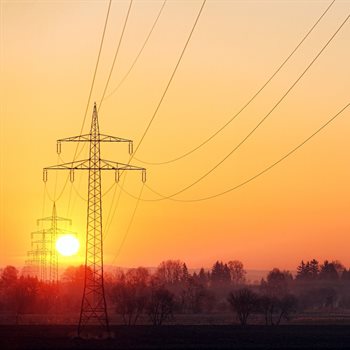
Dr Ioana Pisica
Reader in Power Systems
Howell Building 219
- Email: ioana.pisica@brunel.ac.uk
- Tel: +44 (0)1895 265726
Research area(s)
In the recent years Ioana has been actively researching modern optimization techniques for power systems with distributed generation and FACTS devices, machine learning for power systems control, power quality and smart metering. Ioana was also involved in agent based modelling, smart metering communications and analysis of large amounts of data from smart meters as part of the EPSRC ADEPT project in collaboration with the University of Oxford. She was PI on a UK-Turkey project on smart distribution systems and Co-I on several transmission and distribution research projects.
Her current research interests focus on smart grids, power system analysis and control, dynamic electricity tariffs, netowrk and demand flexibility and ICT infrastructures for future power networks.
Research grants and projects
Research Projects
Grants
Funder: Engineering & Physical Sciences Research Council
Duration: June 2022 - August 2022
Funder: British Council
Duration: February 2021 - February 2023
The aim of this project is to increase welfare of low-income population in Southeast Turkey by achieving savings in the distribution network that serves them. This will come from digitalizing the energy systems and decreasing power losses. It will allow more renewable energy installations, leading to long term economic benefits.
Funder: InnovateUK
Duration: September 2019 - February 2021
Funder: National Grid Electricity System Operator Ltd
Duration: March 2018 - November 2020
Funder: British Council
Duration: February 2017 - January 2018
The workshop provided a research framework in intelligent energy systems to establish collaborative programs between academia and industry targeting both UK and Turkey. It also facilitated the cooperation and discussion between the participating institutions. This will continue beyond the workshop to provide a useful forum to exchange ideas and develop effective collaboration programs between participants and industry at international level. Personally, organising this workshop has improved my coordination and project management skills. Furthermore, I have had the chance to engage in interesting discussions with participants that may lead to future research. Over four days, the researchers from the UK and Turkey working on different aspects of smart grids showcased their work, discussed cutting-edge research and we all explored how our strengths could be matched for future collaborations. I am expecting this outcome to enhance not only the participants’, but also my research profile.
Funder: Brunel University London - BRIEF AWARDS
Duration: May 2015 - September 2016
Funder: Thames Water
Duration: November 2014 -
Currently Thames Water reports an approximate renewable energy capability of 156GWh, utilising 151GWh of this energy by feeding it back into the processes associated with water treatment. The remaining 5GWh is exported to the national grid which alleviates demands from other users. Renewables play a key role in achieving a more attractive energy model within the utilities, however, there will require a revised approach to the way in which the existing assets utilise this energy. The answer is not simply just to generate more, by using ‘greener’ methods, there must be an emphasis on how the existing demand can better controlled. Successful investments in energy reduction methods will reduce risk of exposure to volatile power prices and potentially return large savings by responding to markets as effective virtual electrical generators. This proposal will explore the potential of optimising the existing asset base within a UK water utility. It will set out to utilise the existing assets in a more intelligent and controlled manor and optimise the use of energy both for environmental and economic benefits.
Project details
Dr Pisica was Co-I of the Horizon 2020 project TDX-ASSIST: Coordination of Transmission and Distribution data eXchanges for renewables integration in the European marketplace through Advanced, Scalable and Secure ICT Systems and Tools as Co-Investigator
Research links
Co-author network
- Prof Gareth Taylor
- Dr Ahmed Zobaa
- Dr Colin Axon
- Prof Maozhen Li
- Prof Peter Hobson
- Dr Konstantinos Banitsas
- Prof Mohamed Darwish
- Dr Chun Sing Lai
- Visualise network
Similar research interests
- Professor Gareth Taylor
- Dr Qingping Yang
- Professor Maozhen Li
- Professor Zidong Wang
- Professor Keming Yu
Research group(s)
- IEF






